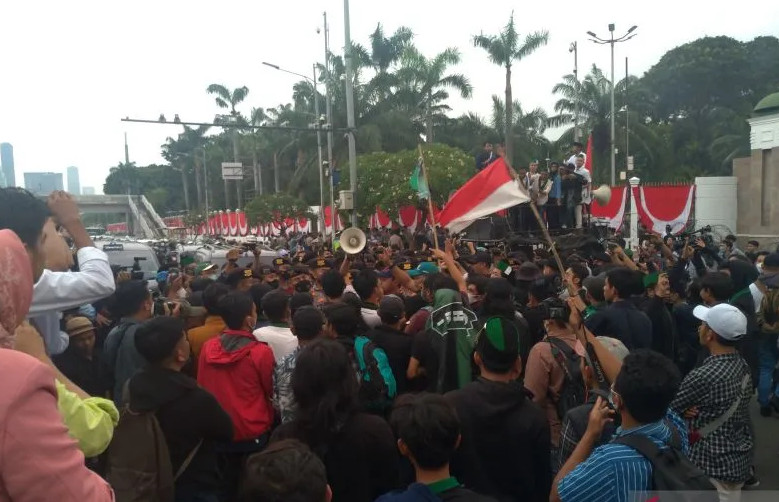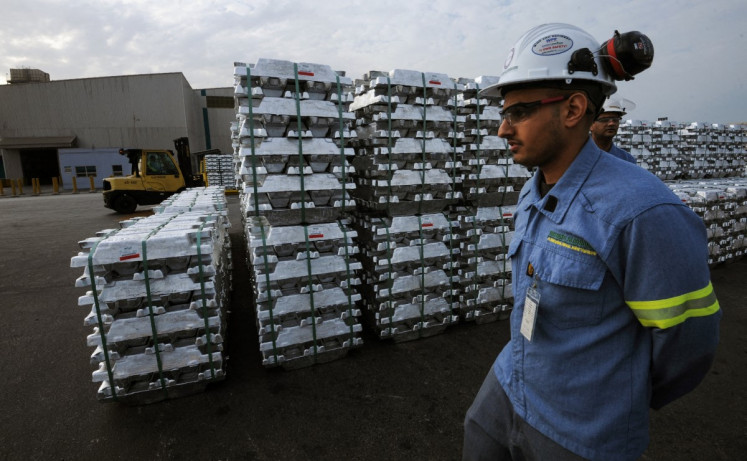Popular Reads
Top Results
Can't find what you're looking for?
View all search resultsPopular Reads
Top Results
Can't find what you're looking for?
View all search resultsTemporary turbulence ahead
The executive and the House of Representatives should work together to explain the economic rationale for the recent fuel price reforms to citizens, including trade union leaders and university students.
Change text size
Gift Premium Articles
to Anyone
T
he government’s fuel price increases last week, while a socially and politically sensitive move, were a long-delayed economic must. The policy will certainly boost inflation and erode household purchasing power in the short run, but barring a prolonged consumer panic and lengthy protests, the inflationary impact will not be as dramatic as some fear.
Inflation expectations will also be subdued if Bank Indonesia (BI) decides to hike its policy rate by another 25 basis points later this month to 4 percent and by 25 basis points again in December to suppress demand and maintain a reasonable interest rate differential with the United States.
The fuel price hike is crucial to wooing investors back to the rupiah-denominated bond market, which, according to securities analysts, has recorded three consecutive years of net foreign outflows.
There is a big risk that economic growth this year could be lower than the inflation rate. But the painful fuel price measure will help remove the fiscal overhang that has discouraged foreign investment in rupiah-denominated assets and will enable the government to restore the fiscal deficit to the legal ceiling of 3 percent of gross domestic product by 2023.
How, indeed, could a country that imports 60 percent of the fuel it consumes and has endured a steady budget deficit sustainably spend more than 25 percent of its state revenue on fuel subsidies that are used mostly by middle-and upper-income people.
The executive and the House of Representatives should work together to explain the economic rationale for the fuel price reforms to citizens, including trade union leaders and university students.
They should explain clearly why the fuel price reforms are economically necessary, how most fuel subsidies have been misallocated to people who can well afford market-price gasoline and how the government has allocated Rp 24.17 trillion (US$16.1 billion) in additional social assistance to protect the most vulnerable families from the inflationary impact of the price changes.
After all, the government has been responsible for allowing fuel subsidies to remain in place for so long that people feel entitled to cheap fuel and are not inclined to think of the market forces that define its true cost.
There have been waves of vocal, grassroots opposition to the subsidy reforms over the past few days, and demonstrations are likely to continue the next few days.
But it is imperative that the protesters are convinced of the necessity of the fuel price changes so that lengthy demonstrations do not further drain the resources of the National Police, who are struggling with their own internal issues as they seek to bring the killers of Brig. Nofriansyah Yosua Hutabarat to justice.











